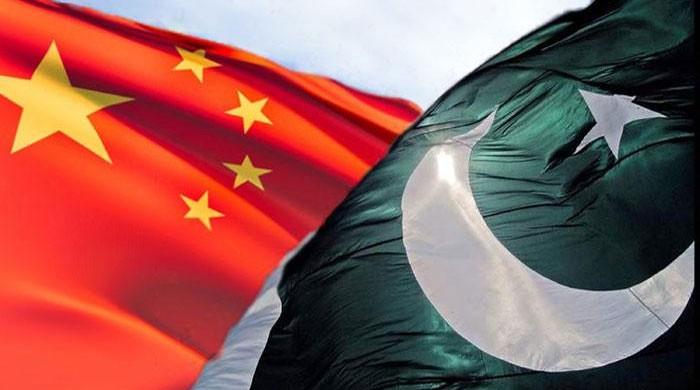Pakistan, China ink agreement to upgrade Karachi-Peshawar rail track
May 15, 2017

BEIJING: Pakistan on Monday signed an agreement with China to upgrade Karachi-Peshawar railway track, besides other projects.
The framework agreement of upgradation of Karachi-Peshawar track was signed at a ceremony at the Chinese Ministry of Transport office.
Minister for Railways, Khawaja Saad Rafique, led the Pakistani delegation at the ceremony, while the Chinese minister for transport represented China.
Chief ministers from Sindh, Balochistan and Khyber Pakhtunkhwa were also present on the occasion.
The signing of the agreement comes during a six-day visit of Prime Minister Nawaz Sharif to China to attend the Silk Road summit opened on Sunday to promote an ambitious global trade infrastructure project highlighting China's growing leadership on globalisation.
Speaking afterwards, Rafique said the agreement of upgradation of main line track (ML1), from Karachi to Torkham, is a historic one.
"This agreement paves a way for innovation in Pakistan Railways," he said, elaborating that the track connects three provinces of the country.
The Chinese minister for transport also assured of expediting work on Karachi circular railway, and other projects in Quetta and Peshawar.
Earlier in the day, Premier Sharif hailed China’s One Belt One Road initiative as the “beginning of a new era for humanity”, saying it would bring unprecedented opportunities to the poor regions to break free from poverty.
The two countries signed three agreements pertaining to economic and technical cooperation worth 3.4 billion Yuan for Gwadar port and East Bay expressway, according to media reports.
Memorandums of Understanding (MoUs) related to cooperation within the framework of the Silk Road Economic Belt and the 21st century Maritime Silk Road initiative, and the establishment of Havelian Dry Port were also signed.
The signing ceremony was witnessed by Prime Minister Nawaz Sharif and the Chinese premier Li Keqiang.











